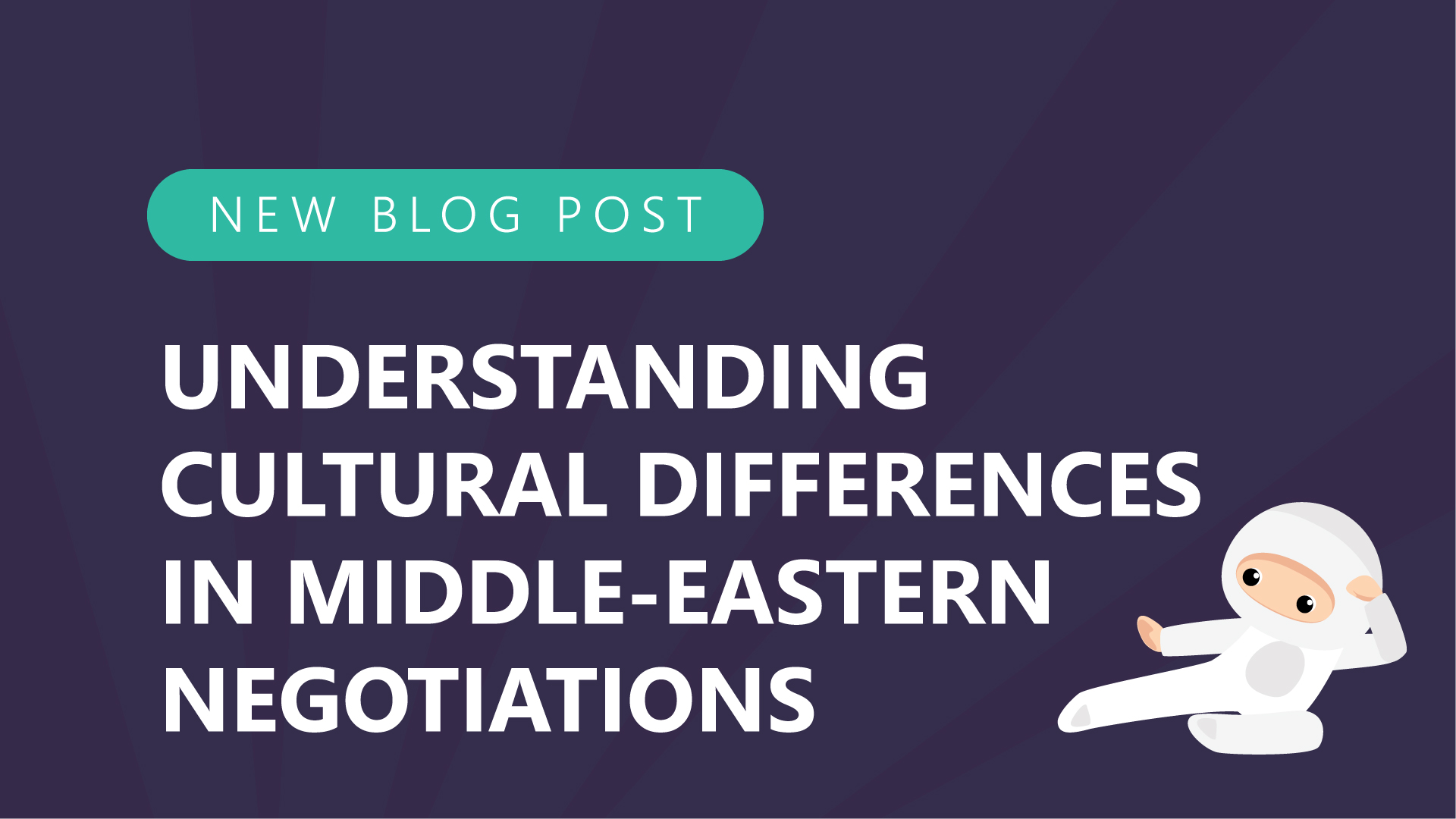Formalized trade deals are beginning to take place between the United Arab Emirates and Israel. It’s a historically monumental move that’s come about as the world is in turmoil from the coronavirus pandemic. In episode #173 of the Negotiations Ninja podcast, Dr. Shira Mor talks about honor-culture and the unprecedented trade deals and what those negotiations look like. They’re learning a lot from these business negotiations, and she was kind enough to share from her experience.
The cultural similarities between the nations
Shira notes that understanding the similarities between Israel and the Emirates can be confusing. The Emirates is very Middle Eastern, whereas Israel is penetrated by Western influence. The Union can certainly be perceived as more collectivistic than individualistic. But the research Shira has been a part of shows that they’re pretty similar. Israeli’s and Emirates definitely look more similar than if an Israeli was compared to an American.
Shira emphasizes that “honor-culture” defines the negotiations of people in the Middle East. It’s a culture of honor categorized by collective values and externally validated by strong self-worth. The cognition and behaviors are strongly related to one’s self-worth. Shira emphasizes, “If you represent or say anything about one’s company, one’s culture, one’s country, in a way that lacks respect, you’re now violating this culture of honor.”
North American negotiations with the Emirates
North Americans make the broad assumption that if we act a certain way, other people will act the same way. But the Middle East and Asia are completely different. One of Shira’s colleagues worked on a study that looked at honor-culture negotiators from Qatar and honor-culture negotiators from the U.S. and China. Qatari negotiators were more competitive, used more distributive negotiation tactics, and had lower joint gains in integrative negotiations. They come in being more competitive. American’s must adapt their expectations and understand the style of honor culture to have more successful negotiations.
Honor-culture
If you’re negotiating with an American person and demonizing Trump, it wouldn’t necessarily reflect on that individual’s self-worth. Because in North America and the U.S., there is a separation from the collective identity. In honor cultures, it is strongly intertwined: Your self-worth stems from the collective. It’s a completely different territory. UAE-Israel relationships have a lot to distinguish in terms of patterns of behaviors that they’re used to as negotiators.
The key negotiation differences to keep in mind
What Shira is hearing on the ground from actual business deals is that there are differences in terms of the speed of business negotiations. Israeli negotiators are used to moving quickly through details and moving forward in the transaction from an economic perspective. The Emirates need time to get to know their negotiation partners and establish trust. In any first business meeting or interaction, they don’t even talk about business through the first half.
Instead, they focus on connecting with each other and speak about their family, relationships, and things that they value and cherish. It’s a whole different way to manage business and work relationships. It requires negotiators to be open about their personal life. You have to bring your true self to the table. You must come in with a lot of humility and connect on an individual level. Those are skills and behaviors that you must practice before a negotiation with someone from the UAE.
To learn more about honor-culture negotiations and the trade deals that are being formalized, listen to episode #173 of the Negotiations Ninja podcast. Dr. Shira Mor takes a detailed look at the positive changes that are happening in the Middle East.

